 4
4
Many of our daily activities have been forcibly changed because of the Covid-19 pandemic. In a life under restrictions, social isolation and prohibitions, not only people but also "objects" became the subject of special requirements and regulations. According to the new rules of Bulgaria’s Ministry of Culture, books in libraries are also subject to "quarantine". Once returned by their readers, they must remain in "isolation" for at least 72 hours. The reason is the ability of the virus to stick to surfaces and stay on them for a long time.
Unlike all other public libraries, the national library "St. St. Cyril and Methodius” in Sofia does not lend books for home – the volumes stored there can be used only on the spot. After resuming work with readers on May 19, the library also implemented strict anti-epidemic measures. For readers, they start at the very doorstep where their temperature is taken via contactless thermometers, their shoes and hands get disinfected and they are given a pair of gloves.
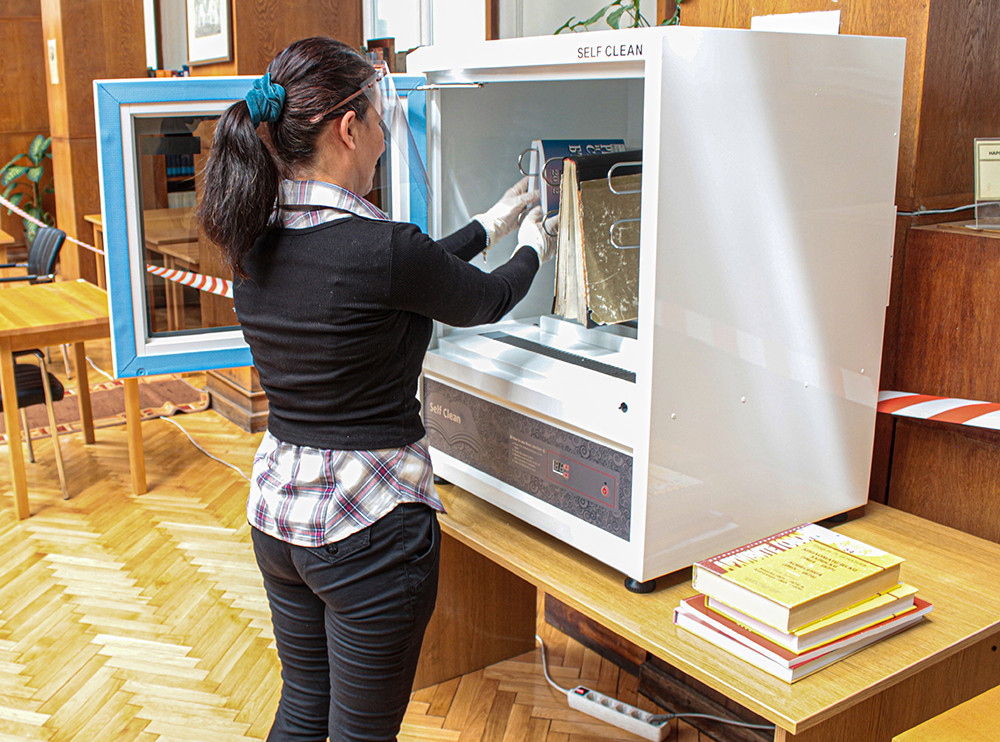
Extraordinary measures are also taken with regard to the book treasury. These include а 72-hour isolation of books, a special UV portable sterilizer for newspapers and other periodicals, treatment with tea tree essential oils of valuable archives. A special place in the National Library has also been designated for “quarantining” books.
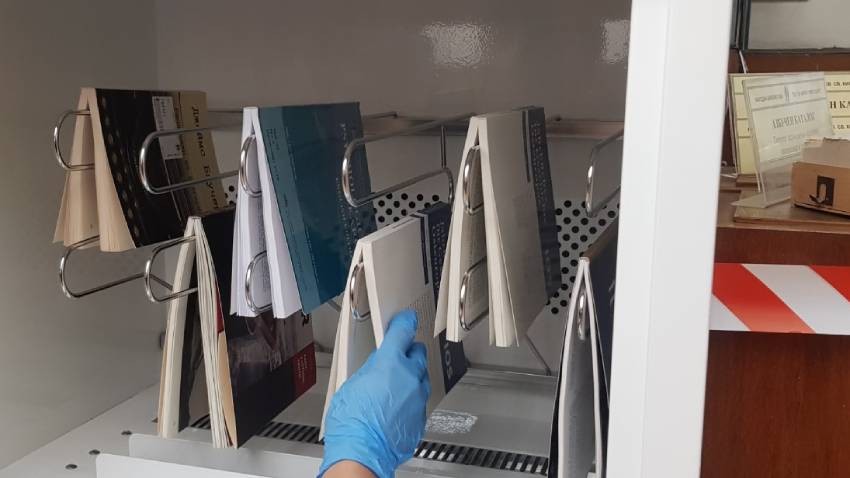
But the mandatory three-day quarantine of books is proving to be a problem. Because of the measure, even the same reader cannot use one book for two consecutive days. This encourages library management to find a more reliable and fast way to sterilize books. A UV device for disinfection of books has been put into use for about a week. The microwave-like appliance uses ultraviolet rays which kill the virus without damaging the paper.
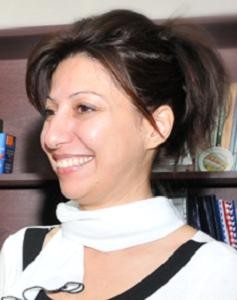 "With the help of the new device, 6 books are disinfected in 30 seconds," explains the library’s deputy director Vanya Avramova. “In this way we reduce the time for isolation of books, which should be 72 hours, as recommended by the World Health Organization. Now we can give the book to another user within the same day."
"With the help of the new device, 6 books are disinfected in 30 seconds," explains the library’s deputy director Vanya Avramova. “In this way we reduce the time for isolation of books, which should be 72 hours, as recommended by the World Health Organization. Now we can give the book to another user within the same day."
Prof. Milen Kumanov from the Historical Institute of the Bulgarian Academy of Sciences is one of the most regular readers at the National Library. "This is my second home. For a researcher, the library is the most valuable source of knowledge,” he says.
"It is very important in this tense situation to continue our research work. The library staff does everything possible to create conditions for this. I am very pleased with the measures! Seats and desks are disinfected after each reader, all books are sterilized and everything possible is done so that no infection could start from here. The hours spent in the library are the most important part of my daily routine. Then I feel that I have spent my day fully. Books for us are as vital as is water for fish”.
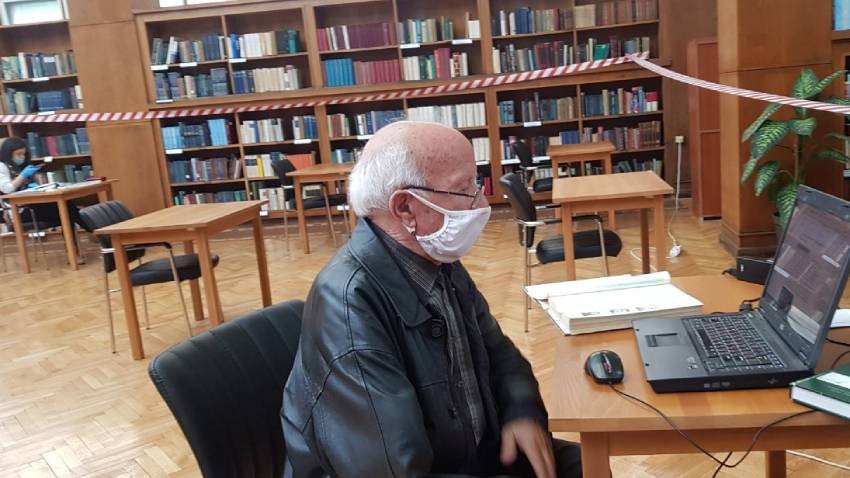
Tea tree essential oil dissolved in alcohol is also an effective method of disinfecting books and archives.
"Different methods of disinfection are applied in the National Library, depending on the condition of the funds," explains Ibayla Bogdanova, head of the restoration department. “When performing the annual prophylaxis of the library funds (including books, documents, and archives), the cleaning with essential oils is also done. It is scientifically proven that essential oils are effective in fighting bacteria. They are dissolved in alcohol which is also effective against the new coronavirus”.
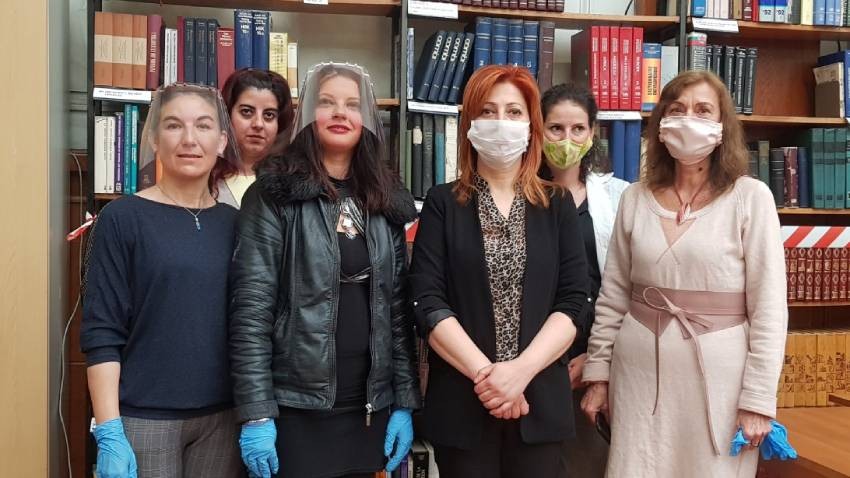
English Rossitsa Petcova
Photos: BGNES, e-scriptum, nationallibrary.bg, Sevda DyukandzhiA colorful graffiti mural, created in connection with the 20th anniversary of Bulgaria's membership in NATO, was unveiled in Blagoevgrad (Southwestern Bulgaria). The street-art work can be seen at 65 Slavyanska Street. It was realized with the..
Over 100 films and various discussions on current issues await those who seek a first-hand account of events in Ukraine at the fifth edition of ОКО - International Ethnographic Film Festival. For the first time, the festival is a Ukrainian-Bulgarian..
The exhibition "The Transylvanian Medieval Fortress" by the Romanian artist Ovidiu Carpusor will be presented from November 9 to 23 in the "Quiet Nest" gallery of the Palace Architectural Park Complex in the town of Balchik , on Bulgaria's Northern Black..

+359 2 9336 661
